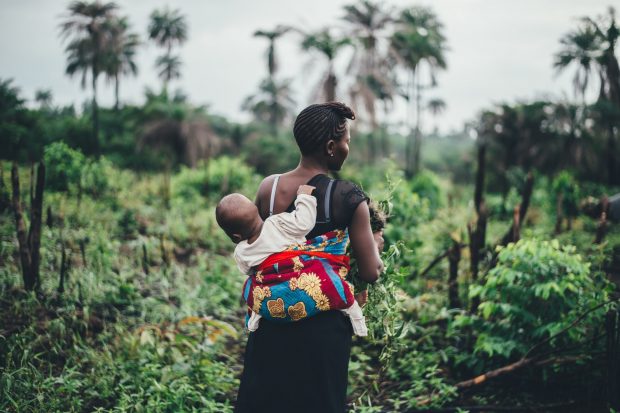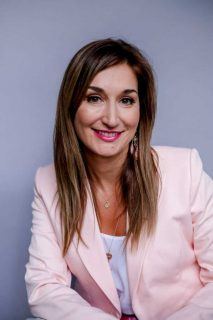Op Ed: Johannesburg, 10 AUGUST 2021 –Sandra Orta, General Manager for South Africa & Sub-Saharan Africa at Roche shares her views on women’s health in Africa and why it is a pressing human rights issue.
August is Women’s Month. As we examine global women’s issues more closely, we are reminded of the topic of women’s health in Africa. This is a subject that is increasingly being framed by the vital role that diagnostics plays in ensuring that long-term health across the continent improves and is preserved.
Improving health is central to fulfilling the immense potential of the African continent, yet millions of people face obstacles at every step of their health journey. 11-14
Africa’s harsh reality
According to the World Health Organisation (WHO), maternal health – or the health of women during pregnancy, childbirth and the postpartum period and reproductive health – is a human rights issue.11 Across the African continent, there are considerable gaps in maternal health interventions like antenatal care. While southern Africa reported almost universal coverage in 2010, about one third of pregnant women in in West Africa did not receive antenatal care visits.11

Photo by Annie Spratt on Unsplash
High number of maternal deaths
The high number of maternal deaths in Africa highlights the gap between rich and poor. Almost all maternal deaths (99%) occur in developing countries and more than half of these deaths occur in sub-Saharan Africa, and the biggest risks to women during pregnancy are severe bleeding after birth, infection after childbirth and preeclampsia.11 These conditions are treatable when they are diagnosed in time. In fact, the reality is, most maternal deaths are preventable.11 Access to antenatal care with adequate diagnostics systems can prevent serious – or fatal – complications.
UNICEF cites two major factors that affect a woman’s chances of surviving childbirth: access to adequate healthcare during pregnancy and access to assisted birth, with the help of a skilled birth attendant.12 Adequate antenatal care can help women prepare for delivery and understand warning signs of complications such as preeclampsia during pregnancy and childbirth.12
Why preeclampsia matters
Preeclampsia is a serious multi-system complication of pregnancy. It occurs in 3-5 % of pregnancies, and it is one of the leading causes of maternal and perinatal morbidity and mortality worldwide.1-3
The condition is the new-onset of hypertension that develops after 20 weeks of gestation. How it presents from patient to patient can vary tremendously, making prediction and diagnosis difficult.1-3
Pregnancy risks and women’s health in Africa
Analysing placental samples plays an important role in early detection of preeclampsia and early and precise diagnosis of preeclampsia can lead to effective clinical management and improved outcome for both mother and child.4-7
First trimester screening aids in the diagnosis of preeclampsia, which in turn provides a complete solution for preeclampsia throughout pregnancy. If preeclampsia is detected and appropriately managed before the onset of convulsions (eclampsia) and other life-threatening complications, administering drugs such as magnesium sulphate can lower a woman’s risk of developing eclampsia.15
The true value of diagnostics
Advanced screening and diagnostic tests also empowers couples and clinicians to make decisions – from pregnancy planning to birth. Every mother-to-be hopes for a healthy baby and concerns such as infertility, preeclampsia and Down syndrome often arise. Advanced diagnostic tests can predict, diagnose and manage many of these conditions. Fertility issues, for example, are common and often treatable, affecting one in six couples globally. 8
These and other uncertainties of pregnancy can be relieved by diagnostics from pregnancy through to birth. This drives the case that diagnostic testing should be available to all throughout pregnancy, as clinicians can use diagnostics to monitor infants and pregnant women for a number of avoidable complications.
Empowerment through learning
One of the greatest healthcare challenges for Africa is not developing diagnostic tools or providing treatments, but having enough trained healthcare workers to manage these tools effectively.9
“Ultimately, every African woman has the right to receive sustainable world-class healthcare for a prosperous future”. 16
About the author
Sandra Orta is General Manager for South Africa & Sub-Saharan Africa at Roche.
She believes in a healthy Africa and therefore and is passionate about contributing towards it, in healthcare, in diagnostics and in life.
 Roche focusses on women’s health diagnostics, including areas such as HPV and cervical cancer, ovarian and breast cancer, preeclampsia and fertility. Roche Diagnostics has a proud tradition of innovation in healthcare around the globe. Locally the company is committed to improving health and making a real difference in people’s lives through the early diagnostics of key diseases – that’s everything from HIV, TB, cancer and Covid-19, to heart disease, anaemia and Alzheimer’s disease.
Roche focusses on women’s health diagnostics, including areas such as HPV and cervical cancer, ovarian and breast cancer, preeclampsia and fertility. Roche Diagnostics has a proud tradition of innovation in healthcare around the globe. Locally the company is committed to improving health and making a real difference in people’s lives through the early diagnostics of key diseases – that’s everything from HIV, TB, cancer and Covid-19, to heart disease, anaemia and Alzheimer’s disease.
The company opened the Roche Scientific Campus in Johannesburg, South Africa in 2012. The Campus provides certified training courses for lab technologists and engineers and to educate healthcare professionals and scientists on health and scientific topics. Their goal is to continue to strengthen training for diagnostics workers in Africa.
References
- Verlohren, S., et al. (2012). Am J Obstet Gynecol 206(1), e1-8
- Verlohren, S., et al. (2010). Am J Obstet Gynecol 202(161), e1-11
- Verlohren, S., et al. (2014). Hypertension 63(2), 346-352
- Hund, M., et al. (2014). BMC Pregnancy and Childbirth 14, 324
- Zeisler, H., et al. (2016). N Engl J Med 374(1), 13-22
- Hund, M., et al. (2015). Hypertens Pregnancy 34(1), 102-115
- Klein, E., et al. (2014). PLoS ONE 11(5), e0156013
- European Society of Human Reproduction and Embryology. https://www.eshre.eu/Press-
Room/Resources.aspx (Last accessed March 2018)
References sourced from:
- https://diagnostics.roche.com/
global/en/products/params/ elecsys-sflt-1-plgf- preeclampsia.html
- https://www.afro.who.int/
health-topics/maternal-health (last accessed July 2021)
- https://data.unicef.org/topic/
gender/maternal-health-gender/ (last access July 2021)
Credit: Main Photo by Tachina Lee on Unsplash





![women [longevity live]](https://longevitylive.com/wp-content/uploads/2020/01/photo-of-women-walking-down-the-street-1116984-100x100.jpg)









